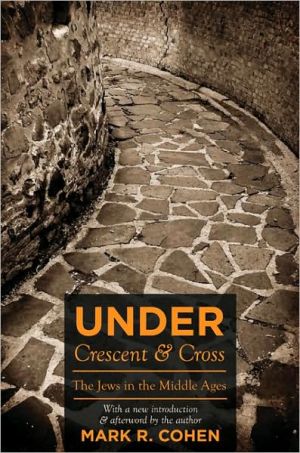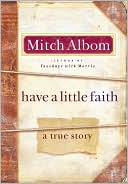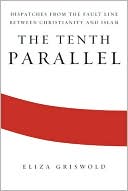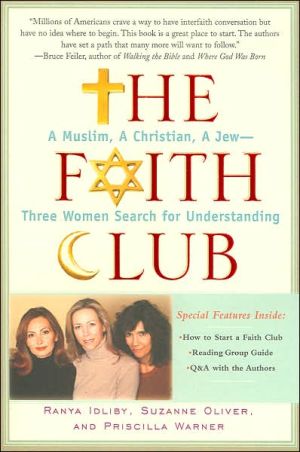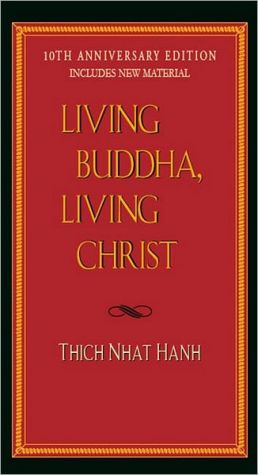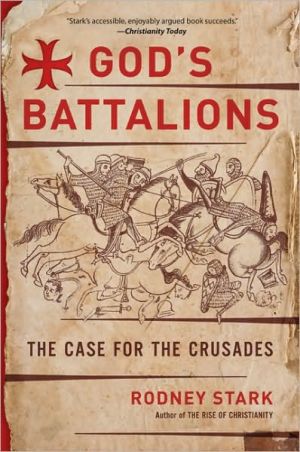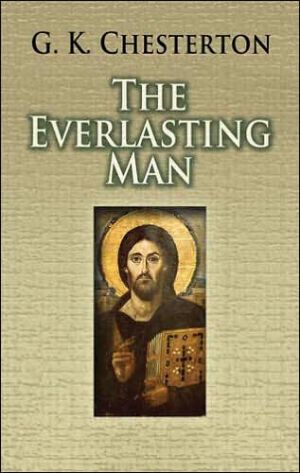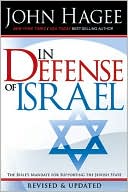Under Crescent and Cross: The Jews in the Middle Ages
Did Muslims and Jews in the Middle Ages cohabit in a peaceful "interfaith utopia"? Or were Jews under Muslim rule persecuted, much as they were in Christian lands? Rejecting both polemically charged ideas as myths, Mark Cohen offers a systematic comparison of Jewish life in medieval Islam and Christendom—and the first in-depth explanation of why medieval Islamic-Jewish relations, though not utopic, were less confrontational and violent than those between Christians and Jews in the West.\...
Search in google:
Did Muslims and Jews in the Middle Ages cohabit in a peaceful "interfaith utopia"? Or were Jews under Muslim rule persecuted, much as they were in Christian lands? Rejecting both polemically charged ideas as myths, Mark Cohen offers a systematic comparison of Jewish life in medieval Islam and Christendom--and the first in-depth explanation of why medieval Islamic-Jewish relations, though not utopic, were less confrontational and violent than those between Christians and Jews in the West. Under Crescent and Cross has been translated into Turkish, Hebrew, German, Arabic, French, and Spanish, and its historic message continues to be relevant across continents and time. This updated edition, which contains an important new introduction and afterword by the author, serves as a great companion to the original. Publishers Weekly Jews in the medieval Muslim world faced much less violence and persecution than the Jews of European Christendom, concludes Cohen in this dense, highly rewarding comparative study. Under Islam, he writes, Jews, though considered infidels and subjected to humiliations and recurrent violence, nevertheless occupied a recognized, safeguarded niche within the social hierarchy, enabling them to achieve high status in commerce, medicine, the arts and government service. By contrast, Jews of the Christian world were marginalized and excluded from the prevailing society in the Middle Ages; theological hatred and deeply ingrained anti-Jewish feelings led to massacres, restrictions on Jews' movements and expulsions from towns and countries. Cohen, a Princeton professor of Near Eastern Studies, includes excerpts from period documents, letters, sermons, tracts and histories to buttress his edifying comparative analysis of Jews' legal position, economic activity, response to persecution and interreligious polemics under Islam and Christianity. (June)
Preface and AcknowledgmentsNote on TransliterationIntroductionCh. 1Myth and Countermyth3Ch. 2Religions in Conflict17Ch. 3The Legal Position of Jews in Christendom30Ch. 4The Legal Position of Jews in Islam52Ch. 5The Economic Factor77Ch. 6Hierarchy, Marginality, and Ethnicity107Ch. 7The Jew as Townsman121Ch. 8Sociability129Ch. 9Interreligious Polemics139Ch. 10Persecution, Response and Collective Memory162Conclusion195Notes201Index271
\ American Historical Review[Cohen's] systematic, comparative approach . . . makes this a useful book for courses in general medieval history and Jewish history. Cohen presents the differences between the history of Jewish life under Edom [Christianity] and Ishmael [Islam] in a lucid and comprehensive manner.\ — Stephen D. Beinin\ \ \ \ \ New York NewsdayCohen's is a polemical text in the best sense of the word: it tries to open debate, not stifle it, and asks questions where they are traditionally shouted away. . . . A reassuringly balanced and judicious assessment of Jewish life in the Middle Ages.\ — Andre A. Aciman\ \ \ Medieval EncountersOn the whole, given the complexity of the issues and the long history of the debate about them, Cohen's fresh approach . . . is welcome, and anyone interested in the subject in the future will find it necessary to refer to this important work.\ — William M. Brinner\ \ \ \ \ SpeculumMark R. Cohen has crafted a work that is fascinating in detail and provocative in analysis.\ — Frederic Krome\ \ \ \ \ Sephardic Heritage UpdateThe re-printing of this book with a new introduction and afterword by the author could not come at a better time. . . . Survivors of the Holocaust have left a long and detailed accounting of their suffering which has been added to the collective memory. Unfortunately, it would appear that this memory has transcended history, which is an excellent reason to read Mark Cohen's book lest we forget an essential part of the Jewish heritage.\ — Aimée Dassa Kligman\ \ \ \ \ The Times Literary SupplementCohen's concern in this important new book is with a historiographically far more interesting and useful question [than the debate over the Jewish experiences in the medieval worlds of Christendom and Islam]: why the difference? . . . Cohen's argument is buttressed with an impressive range of evidence drawn from both Jewish and non-Jewish sources in the Islamic and Christian worlds.\ — David Wasserstein\ \ \ \ \ Canadian Jewish NewsUnder Crescent and Cross . . . is a useful volume about an extremely sensitive issue.\ — Sheldon Kirshner\ \ \ \ \ HaaretzThis is a required text for anyone interested in the history of the lives of our ancestors in this region and in other regions during the medieval period, which is written in a readable way and does not demand of its readers prior historical knowledge.\ — Sasson Somekh\ \ \ \ \ European LegacyThis important work . . . should be of interest to all those interested in Jewish history. [Cohen's] brilliant and subtle analysis, though focused on the medieval period, provides lessons that are of vital importance today.\ — John E. Weakland\ \ \ \ \ The Times Literary SupplementCohen's concern in this important new book is with a historiographically far more interesting and useful question [than the debate over the Jewish experiences in the medieval worlds of Christendom and Islam]: why the difference? . . . Cohen's argument is buttressed with an impressive range of evidence drawn from both Jewish and non-Jewish sources in the Islamic and Christian worlds.\ \ \ \ \ American Historical Review[Cohen's] systematic, comparative approach . . . makes this a useful book for courses in general medieval history and Jewish history. Cohen presents the differences between the history of Jewish life under Edom [Christianity] and Ishmael [Islam] in a lucid and comprehensive manner.\ \ \ \ \ New York NewsdayCohen's is a polemical text in the best sense of the word: it tries to open debate, not stifle it, and asks questions where they are traditionally shouted away. . . . A reassuringly balanced and judicious assessment of Jewish life in the Middle Ages.\ \ \ \ \ Medieval EncountersOn the whole, given the complexity of the issues and the long history of the debate about them, Cohen's fresh approach . . . is welcome, and anyone interested in the subject in the future will find it necessary to refer to this important work.\ \ \ \ \ SpeculumMark R. Cohen has crafted a work that is fascinating in detail and provocative in analysis.\ \ \ \ \ Sephardic Heritage UpdateThe re-printing of this book with a new introduction and afterword by the author could not come at a better time. . . . Survivors of the Holocaust have left a long and detailed accounting of their suffering which has been added to the collective memory. Unfortunately, it would appear that this memory has transcended history, which is an excellent reason to read Mark Cohen's book lest we forget an essential part of the Jewish heritage.\ \ \ \ \ Canadian Jewish NewsUnder Crescent and Cross . . . is a useful volume about an extremely sensitive issue.\ \ \ \ \ HaaretzThis is a required text for anyone interested in the history of the lives of our ancestors in this region and in other regions during the medieval period, which is written in a readable way and does not demand of its readers prior historical knowledge.\ \ \ \ \ European LegacyThis important work . . . should be of interest to all those interested in Jewish history. [Cohen's] brilliant and subtle analysis, though focused on the medieval period, provides lessons that are of vital importance today.\ \ \ \ \ Sephardic Heritage Update\ The re-printing of this book with a new introduction and afterword by the author could not come at a better time. . . . Survivors of the Holocaust have left a long and detailed accounting of their suffering which has been added to the collective memory. Unfortunately, it would appear that this memory has transcended history, which is an excellent reason to read Mark Cohen's book lest we forget an essential part of the Jewish heritage.\ \ \ \ \ Publishers WeeklyJews in the medieval Muslim world faced much less violence and persecution than the Jews of European Christendom, concludes Cohen in this dense, highly rewarding comparative study. Under Islam, he writes, Jews, though considered infidels and subjected to humiliations and recurrent violence, nevertheless occupied a recognized, safeguarded niche within the social hierarchy, enabling them to achieve high status in commerce, medicine, the arts and government service. By contrast, Jews of the Christian world were marginalized and excluded from the prevailing society in the Middle Ages; theological hatred and deeply ingrained anti-Jewish feelings led to massacres, restrictions on Jews' movements and expulsions from towns and countries. Cohen, a Princeton professor of Near Eastern Studies, includes excerpts from period documents, letters, sermons, tracts and histories to buttress his edifying comparative analysis of Jews' legal position, economic activity, response to persecution and interreligious polemics under Islam and Christianity. (June)\ \ \ \ \ Library JournalDid medieval Jews enjoy peace and security while living in an interfaith utopia under the crescent of Islam but experience hostility and persecution under the cross of Christianity? In this important comparative history study, Cohen (Near Eastern studies, Princeton Univ.) sketches the social, political, and economic status of Jews in Christian and Muslim theology, law, and social practice from the beginning of the common era to Spain's expulsion of the Jews in 1492. He shows that while European Jews were first marginalized and then expelled from the social order, under Islam Jews participated fully in commercial and professional activities. Islamic culture gave the merchant great respect; Christianity did not. While much of this is known to specialists, Cohen advances our knowledge through a fine treatment of the huge literature and the application of social anthropological theory. Scholars will welcome the sound synthesis; general readers will appreciate the lucid style. For research and general collections.-Bennett D. Hill, Georgetown Univ., Washington, D.C.\ \ \ \ \ From Barnes & NobleThis study explains why medieval Islamic-Jewish relations, though not utopic, were less confrontational & violent than those between Christians & Jews in the West. Informative & provocative.\ \
